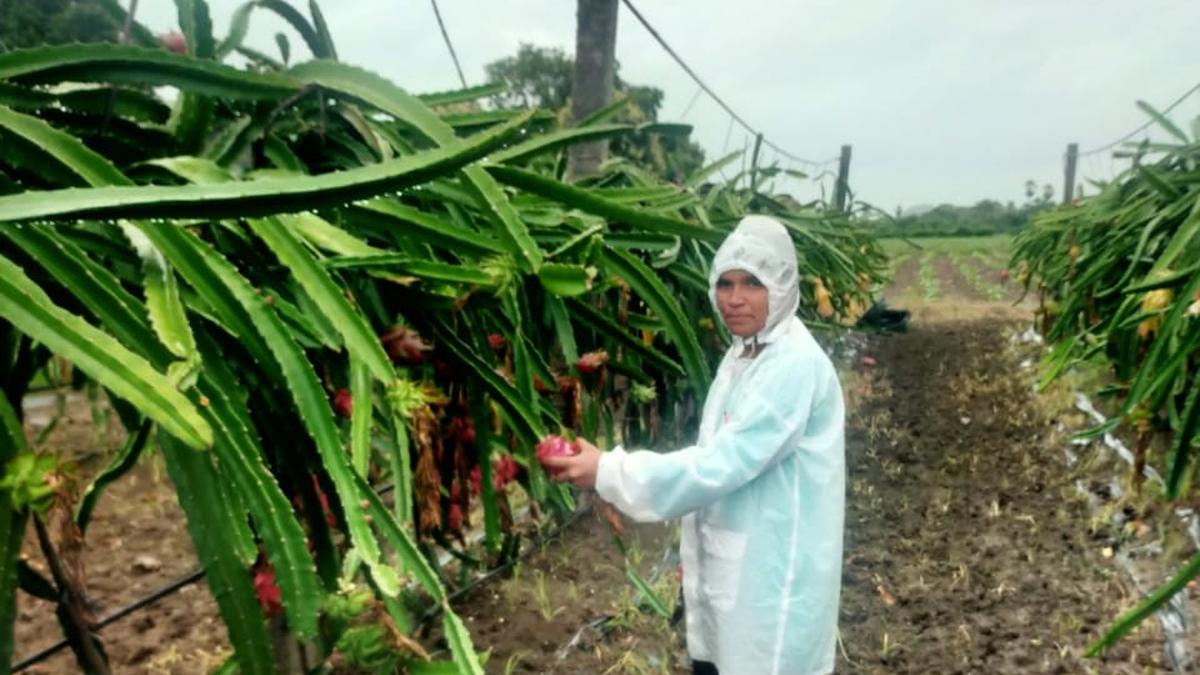
Telangana | Farmers in Hanamkonda adopt dragon fruit cultivation with government assistance
The Hindu
Farmers in Hanamkonda district turn to dragon fruit cultivation with support from government agencies, expecting high yields and income.
Given the increasing demand and support from the Department of Horticulture and the District Rural Development Agency (DRDA), farmers from vulnerable sections in various villages of Hanamkonda district are turning to cultivation of exotic dragon fruit.
Md. Raj Mohammed, a farmer from Seetharampuram village in Damera mandal, has cultivated dragon fruit on 20 guntas (half-acre) with financial assistance from the DRDA as part of horticulture promotion through the Mahatma Gandhi National Employment Guarantee Scheme (MGNREGS) to improve livelihood of vulnerable sections. He is set to harvest his first crop in a day or two. “As it is just an 11-month-old farm, we expect about three quintals of fruit,” said his son 39-year-old Md. Ramzan, expressing gratitude to the district officials and the government for their support.
Ramzan, who discontinued his graduation to assist his father in farming, explained that they previously cultivated vegetables but switched to dragon fruit farming due to its high demand, and losses in vegetable farming. “We invested nearly ₹5 lakh in developing the dragon fruit farm on 20 guntas. The government is providing ₹2.63 lakh. Higher subsidies would benefit poor farmers,” he noted, adding that their investment was substantial as they adopted organic farming methods. “We are getting ₹130 per kg of dragon fruit, while the retail market price ranges from ₹200 to ₹220 per kg,” Ramzan said.
DRDO Naga Padmaja said financial assistance is being offered for 50 acres each in 12 rural mandals of the district for dragon fruit cultivation. “We also offer financial support for various other horticultural crops under specific provisions of the MGNREGS, following a convergence of the Agriculture, Cooperation and Farmers Welfare and the Department of Rural Development to promote horticulture,” she said, urging farmers to utilise this assistance.
Horticulture officials said that farmers can expect yields for 25 to 30 years, with the first major yield after three years. Flowering and fruiting of dragon fruit coincide with monsoon, and proper pollination by nocturnal agents like bats and hawk moths ensures fruit setting, size and total yield. Flowering and fruiting typically occur in three to five segments from June to December, with fruits ready for harvest 30-35 days after flowering. Each fruit weighs around 200 to 700 grams, depending on management practices. Well-managed orchards can yield up to 15 tonnes per acre, generating an average income of ₹8-9 lakh per acre for at least 25 years.













